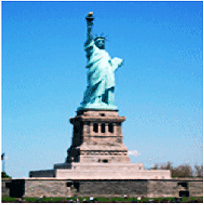About IPR : Copyright

A copyright means a document granted by the Government which endows exclusive rights or privileges to publish and sell literary or musical or artistic work. A copyright also includes cinematographic films and sound recordings
Copyright is a right given by the law to creators of literary, dramatic, musical and artistic works and producers of cinematograph films and sound recordings. In fact, it is a bundle of rights including, inter alia, rights of reproduction, communication to the public, adaptation and translation of the work. There could be slight variations in the composition of the rights depending on the work
Need for Copyright
Copyright ensures certain minimum safeguards of the rights of authors over their creations, thereby protecting and rewarding creativity. Creativity being the keystone of progress, no civilized society can afford to ignore the basic requirement of encouraging the same.Economic and social development of a society is dependent on creativity.
The protection provided by copyright to the efforts of
- writers, artists, designers, dramatists, musicians, architects and producers of sound recordings,
- cinematograph films and computer software
A copyright is also available on
- Computer Programs, Tables & Compilations
- Computer Databases (That can be expressed in words, codes, schemes or any other form including a machine readable medium)
An example of a copyright would be:

Other examples of copyright would be:
- Memento — Cinematographic Film
- Harry Potter — Literary Work
Rights conferred by Registration
In general, registration is voluntary. Copyright exists from the moment the work is created. Under Indian law, registration is not required either for acquiring copyright or for enforcing it in an infringement action. However, registration has evidentiary value in a court of law with reference to dispute relating to ownership of copyright
Author of Copyright
Under the copyright law, the creator of the original expression in a work is its author. The author is also the owner of copyright, unless there is a written agreement by which the author assigns the copyright to another person or entity, such as a publisher. In cases of works made for hire, the provider of the work is considered to be the author.
Infringement of Copyright
As per section 63 of Copyright Act, 1957, any person who knowingly infringes or abets the infringement of
(a) the copyright in a work, or
(b) any other right conferred by the Copyright Act, 1957
shall be punishable with imprisonment for a term which shall not be less than six (6) months but which may extend up to three (3) years and with a fine not less than rupees fifty thousand which may extend to rupees two lakhs. If it is proved that the infringement of copyright has not been made for gain in the course of trade or businesses, the Court may impose a sentence less than six months and a fine less than fifty thousand rupees.
Areas where Copyright is not infringed
- Printing & publishing books without proper sanction – As books published by petition are for students as per syllabus of Board, there is no violation of provision of copyright act.
- Proof of infringement of copyright – Where the translated work of petitioner in his/her book/script conveys a different meaning as well as different interpretation from that of original, it does not amount to infringement of copyright.
Duration of Registration
The duration granted for works of copyright varies depending on the type of work. The general durations as laid down in Copyright Act, 1957 (As amended in 1999) and Copyright Rules, 1958 are:
- Literary or musical works or artistic works, other than photographs, have a life span, which extends for the life of the author and 60 years from the end of the year in which the author dies. However, if the work has not been published, performed, or offered for sale or broadcast during the life of the author, the copyright protection shall continue for a period of 60 years from the end of the year in which any of these acts are done relating to the work
- Cinematograph films, photographs and computer programs are protected for 60 years from the end of the year which the work is made available to the public with the consent of the owner of the copyright or published, or, failing such an event, for 60 years from the end of the year in which the work is made.
- Sound recordings are protected for 60 years from the end of the year in which the recording is first published.
- In the case of anonymous or pseudonymous works, the copyright is for 60 years from the end of the year in which the work is made available to the public with the consent of the owner of the copyright or from the end of the year in which it is reasonable to presume that the author died, which ever term is shorter
